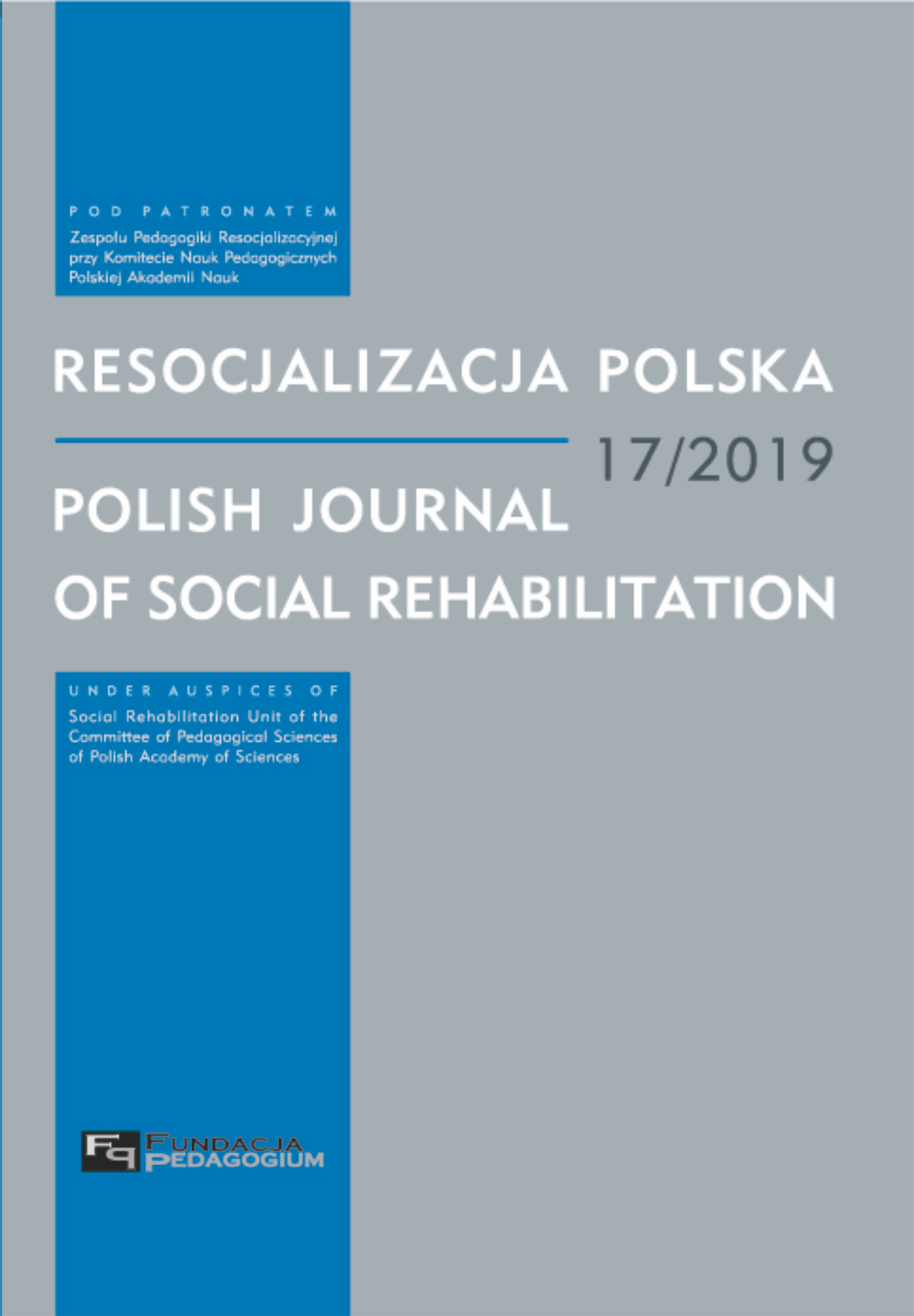Diagnosis of social dysfunctions or individual
potentials in the work of a probation officer
Diagnosis of social dysfunctions or individual
potentials in the work of a probation officer
Author(s): Ewa Wysocka Subject(s): Criminology, Penology
Published by: Fundacja Pedagogium
Keywords: Social rehabilitation; diagnosis; a diagnostic model; probation officer; motivation; concepts of motivation
Summary/Abstract: In the article, the author presents the basic assumptions of a positive diagnosis, which can be used in the work of a probation officer. She treats social rehabilitation as a process of internal transformation, based on discovered and activated potentials and resources of a socially maladjusted individual. The process of inner transformation is recognized as a result of changes in motivation: from amotivation to intrinsic motivation. Two concepts are indicated as the theoretical basis for creating a model of diagnosis in social rehabilitation: the self-determination theory (SDT) by Edward L. Deci and Richard M. Ryan and the concept of lack of motivation, mainly the reasons for amotivation by Lisa Legault, Isabelle Green-Demers, Luc G. Pelletier, Stéphanie Dijon, Kim Tuson, Symeon P. Vlachopoulos and Maria A. Gigoudi. In this context, the author analyzes the motivational process from the perspective of effective social rehabilitation measures. The following paragraphs of the study analyze the understanding of the diagnostic process and present a proposed theoretical model of a social rehabilitation diagnosis, together with its substantive explanation. As a result, this paper attempts to formulate recommendations for diagnosis in social rehabilitation, and to construct a theoretical model of social rehabilitation diagnosis in the area of the work of a probation officer.
Journal: Resocjalizacja Polska
- Issue Year: 17/2019
- Issue No: 1
- Page Range: 47-64
- Page Count: 18
- Language: English

